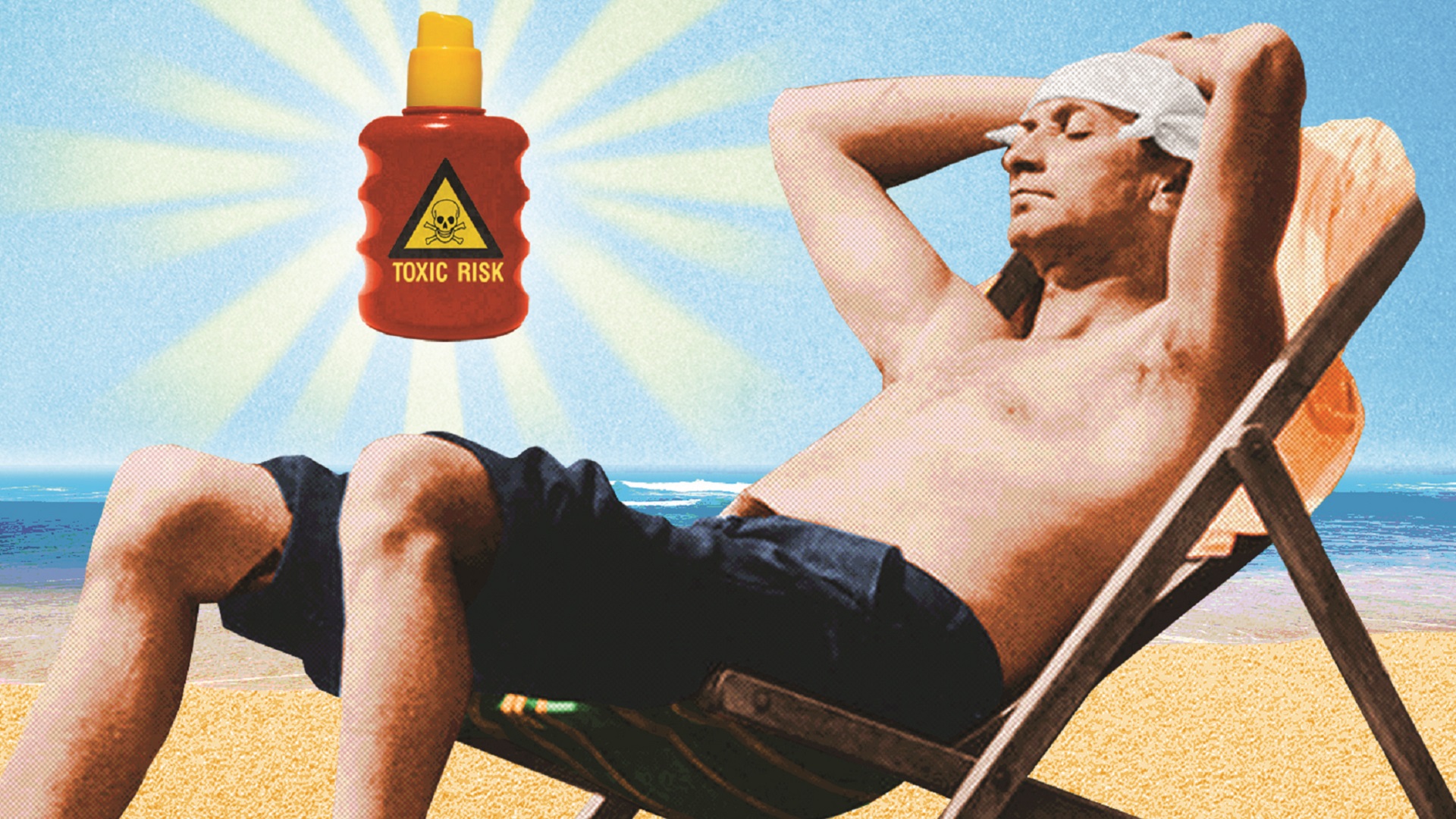Yahoo! also covered the story, opting for “Watch out for sunscreens that contain a cancer-causing chemical – experts say there’s no safe level of exposure”.
CNet’s version of the story took a different approach with their headline. It read: “Lab asks FDA to recall 40 batches of sunscreen from Neutrogena, Banana Boat and more”. Meanwhile, Live Science went for “Cancer-causing chemical found in 78 sunscreen products”.
This is an issue that has been covered in UK-based media in recent months too. In March, Mail Online ran a story titled “Top brand sunscreens risk causing CANCER if left on the shelf for too long because they start to release toxic chemicals, scientists warn”, based on a scientific study from France and the US.
But is it safe to wear sunscreen?
Facts. Checked
Yes, it is safe to use sunscreen, and many of the stories listed above encourage readers to continue using the product, albeit a lot further down the page.
Most of the stories include the quote “People should still continue to use sunscreen, I think, is an important message to get across” from David Light, the head of the independent Valisure lab investigating the presence of benzene in sunscreen.
Advertising helps fund Big Issue’s mission to end poverty
Researchers tested 294 batches of sunscreen from 69 different brands to look for traces of benzene. Scientists found “significant variability from batch to batch, even within a single company”.
High amounts of benzene – between 2.78 and 6.26 parts per million – were found in 14 lots of sunscreen from four different brands, while 26 batches from eight brands had detectable benzene between 0.11 and 1.99ppm. Valisure has asked regulator the Food and Drug Administration (FDA) to recall these 40 batches from 10 different brands, including Neutrogena, Banana Boat and CVS Health.
In addition, 37 lots from 17 brands had detectable benzene at less than 0.1ppm, while there was no benzene found in 217 batches of sunscreen from 66 different brands.
This shows that benzene was only found in a quarter of batches and Dr Christopher Bunick, an associate professor of dermatology at Yale University, said that while the findings show it is critical that regulators address the issue of benzene contamination, it should not put people off sunscreen. He said: “It is important for people, especially heading into the summer months, to understand that many sunscreen products tested by Valisure did not have benzene contamination, and those products are presumably safe and should continue to be used.”
According to medical site Healthline, there is no scientific evidence that sunscreen causes cancer. The site reports that the FDA published reports in 2019 and 2020 that found six common chemical sunscreen ingredients were absorbed into the bloodstream. But the regulator did not suggest using sunscreens was dangerous.
In the UK, Westminster government advice says benzene is known to cause “acute myeloid leukaemia/acute non-lymphocytic leukaemia and potentially other cancers in humans”. And it is no longer permitted to be used in cosmetics.
Advertising helps fund Big Issue’s mission to end poverty
On the whole the news outlets covered this story accurately, but must consider how the story is presented to weigh up risks.
Current evidence points to the fact nearly 90 per cent of melanomas are thought to be caused by exposure to UV light and sunlight, according to Melanoma UK, with sunscreen, avoiding the sun and covering skin the main defence against skin cancer. That means continuing to use sunscreen is vital this summer.
Worth repeating
To avoid skin cancer, Melanoma UK says:
- Seek shade when possible
- Cover up with clothing, sunglasses and a wide-brimmed hat
- Try to avoid being in the sun between 10am-4pm
- Use a broad-spectrum sunscreen with SPF of at least 30 and reapply every two hours









